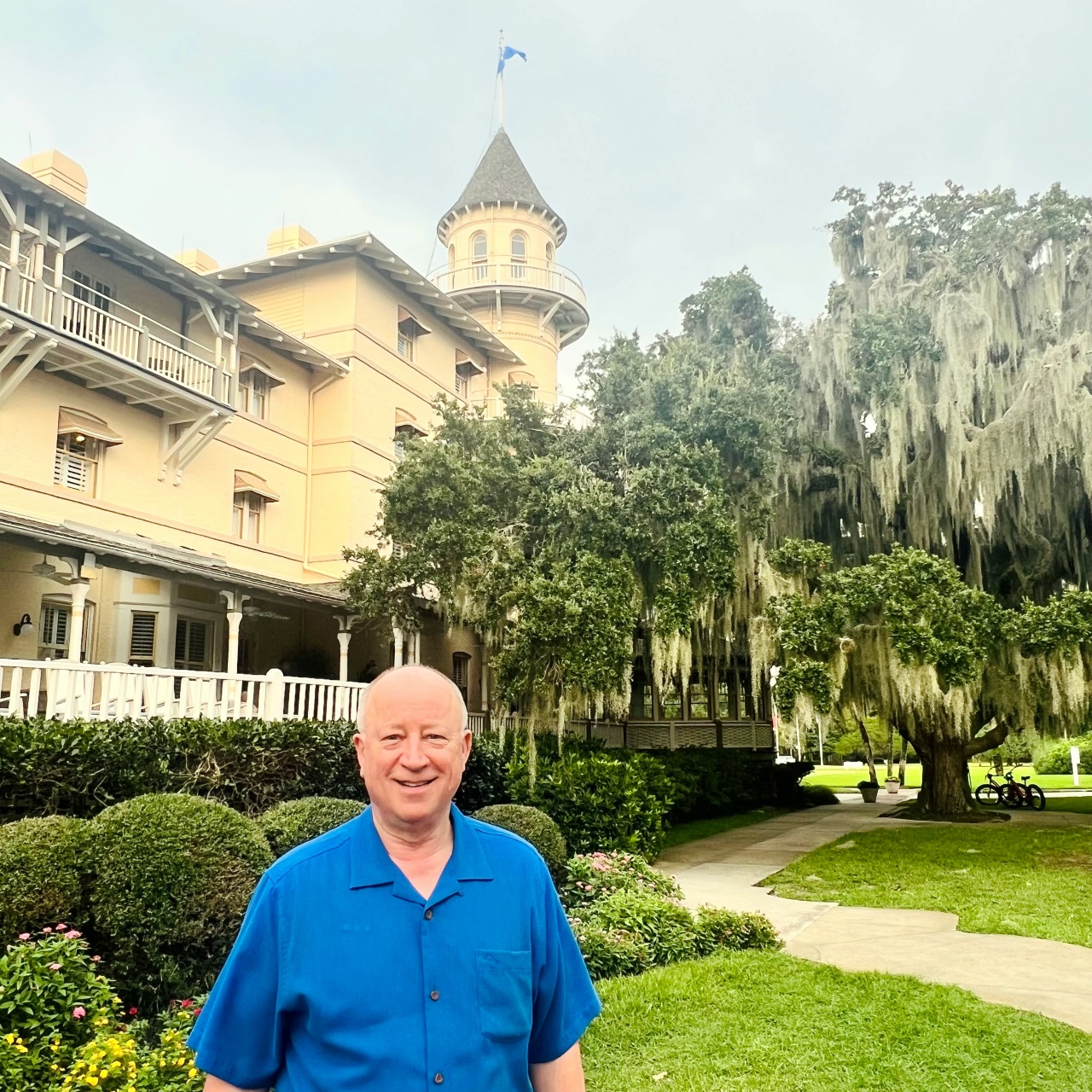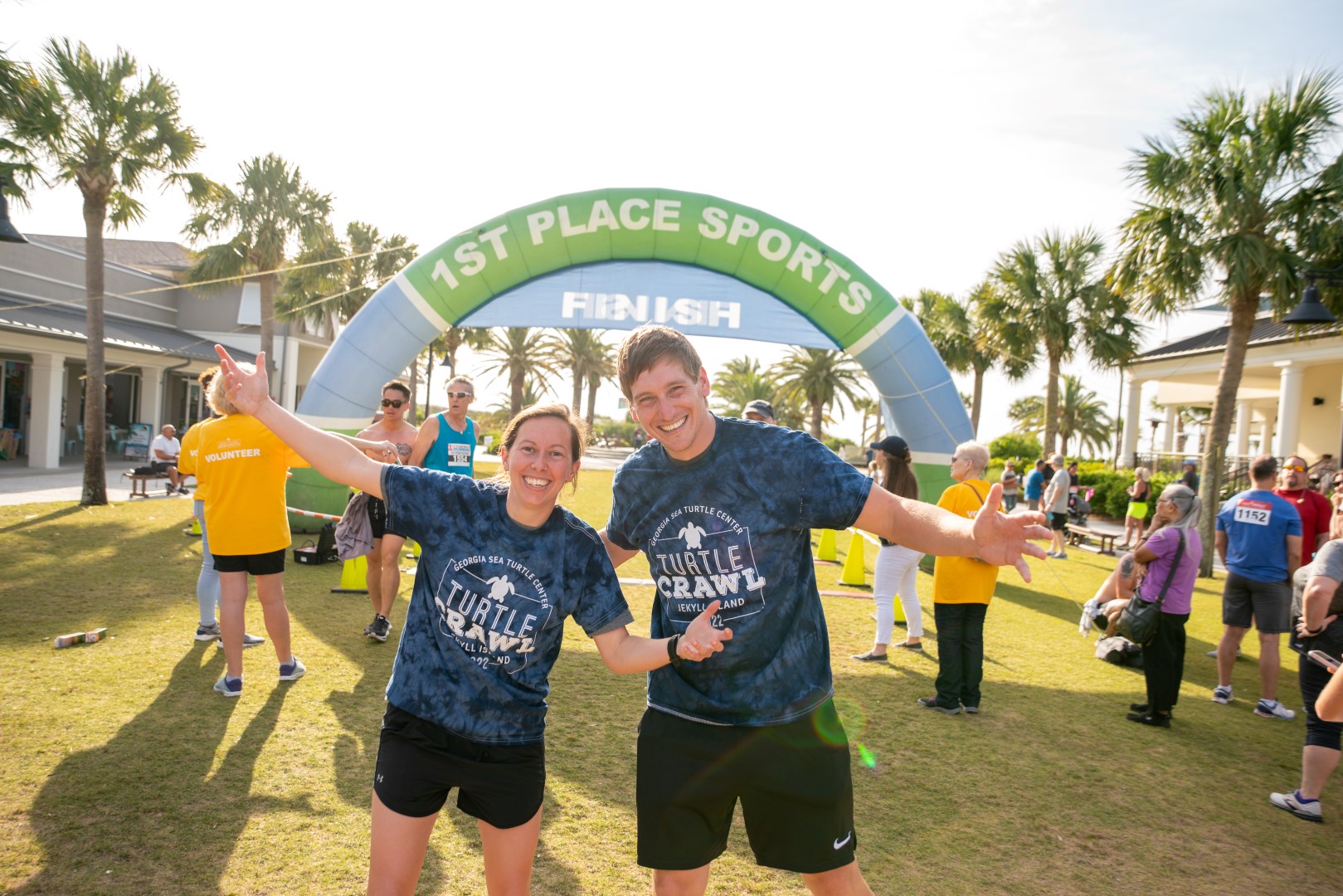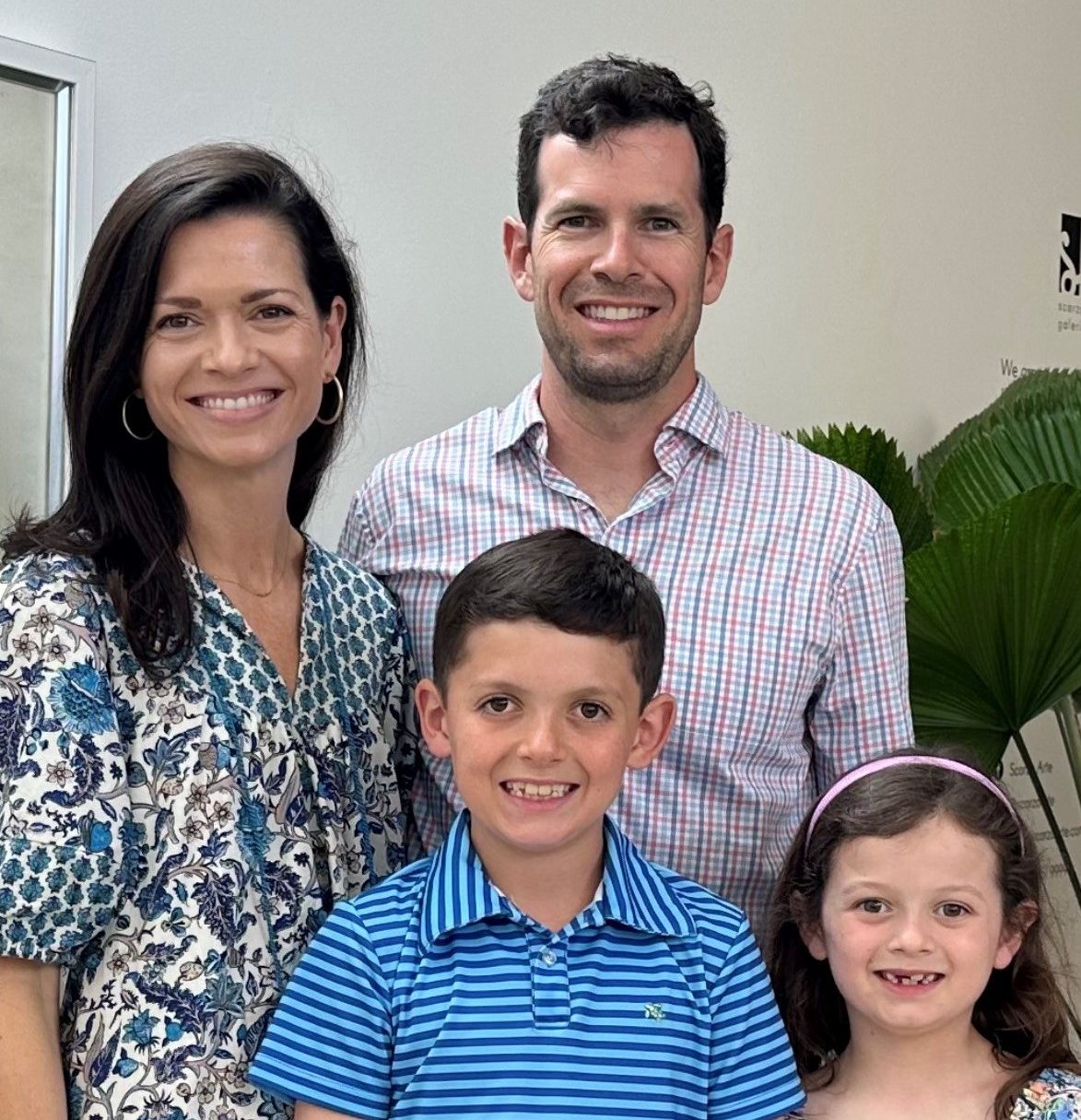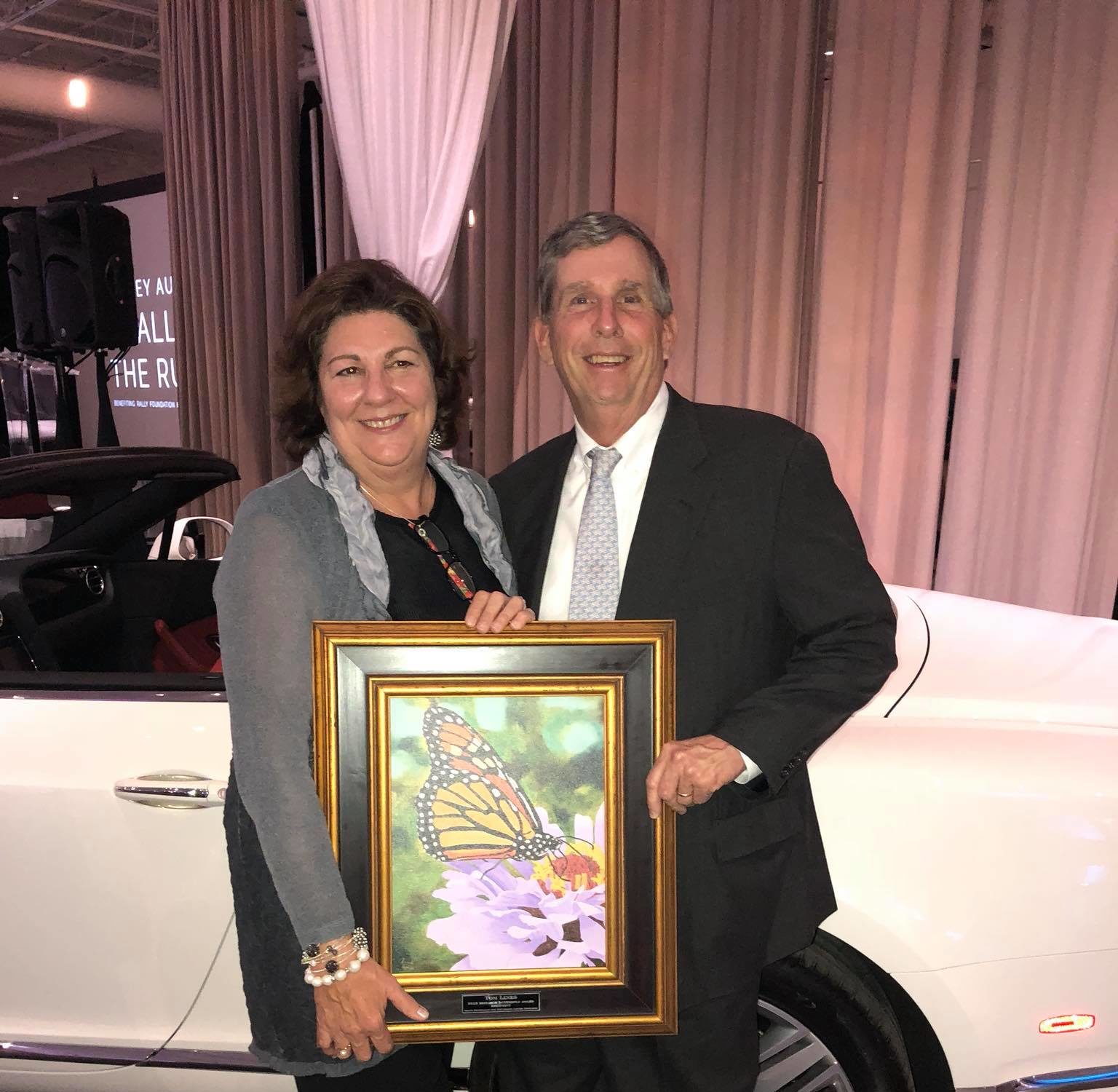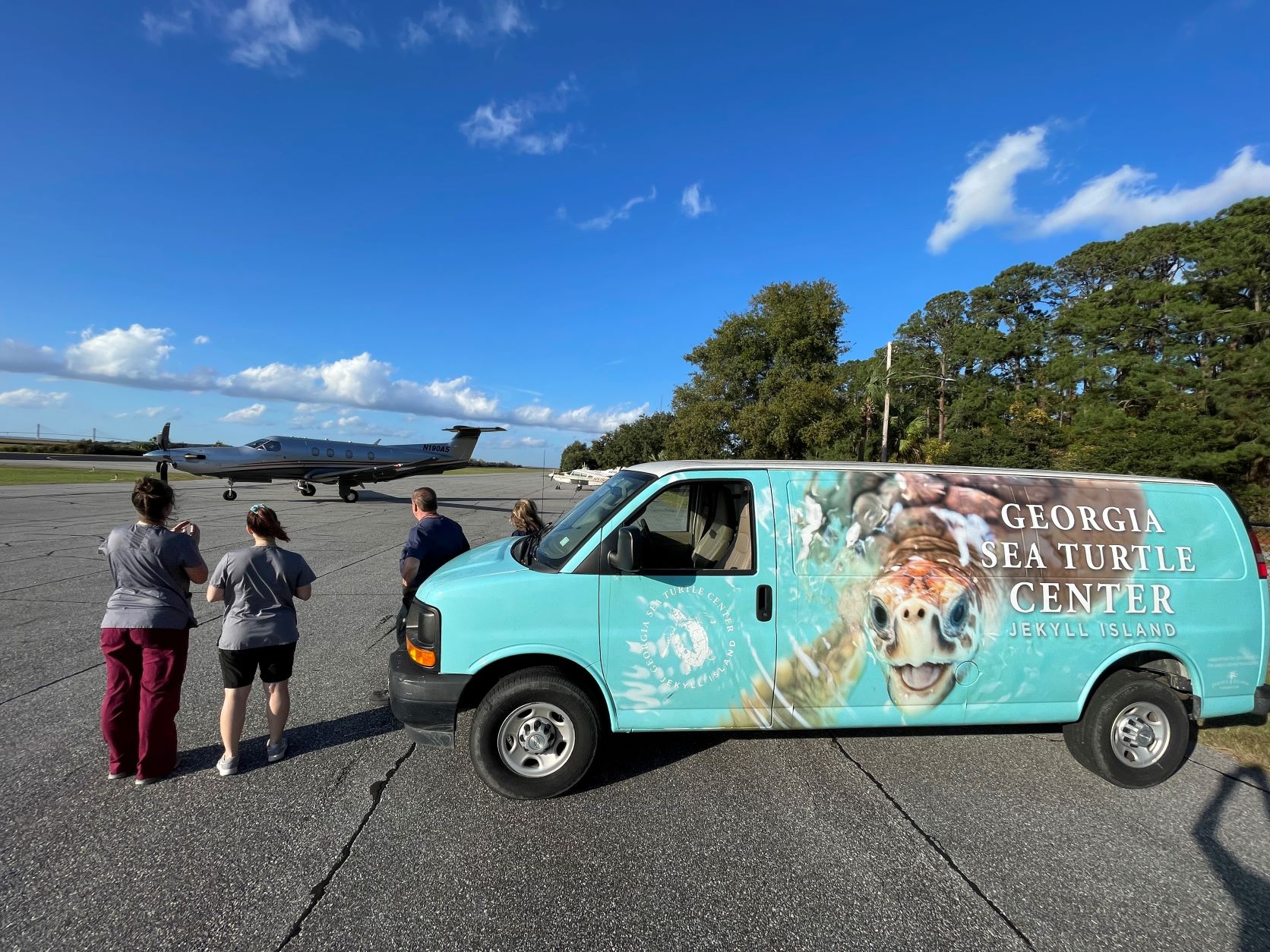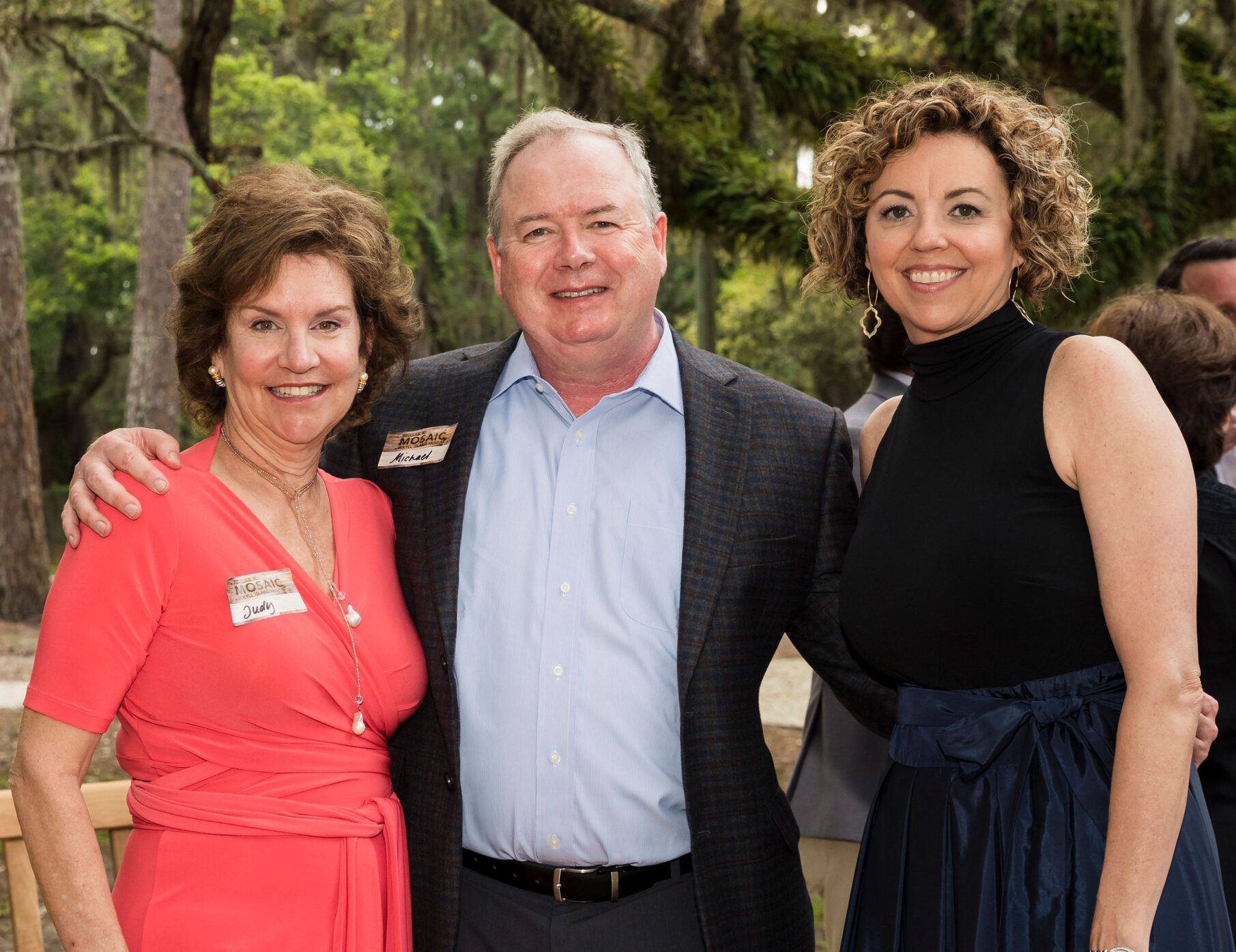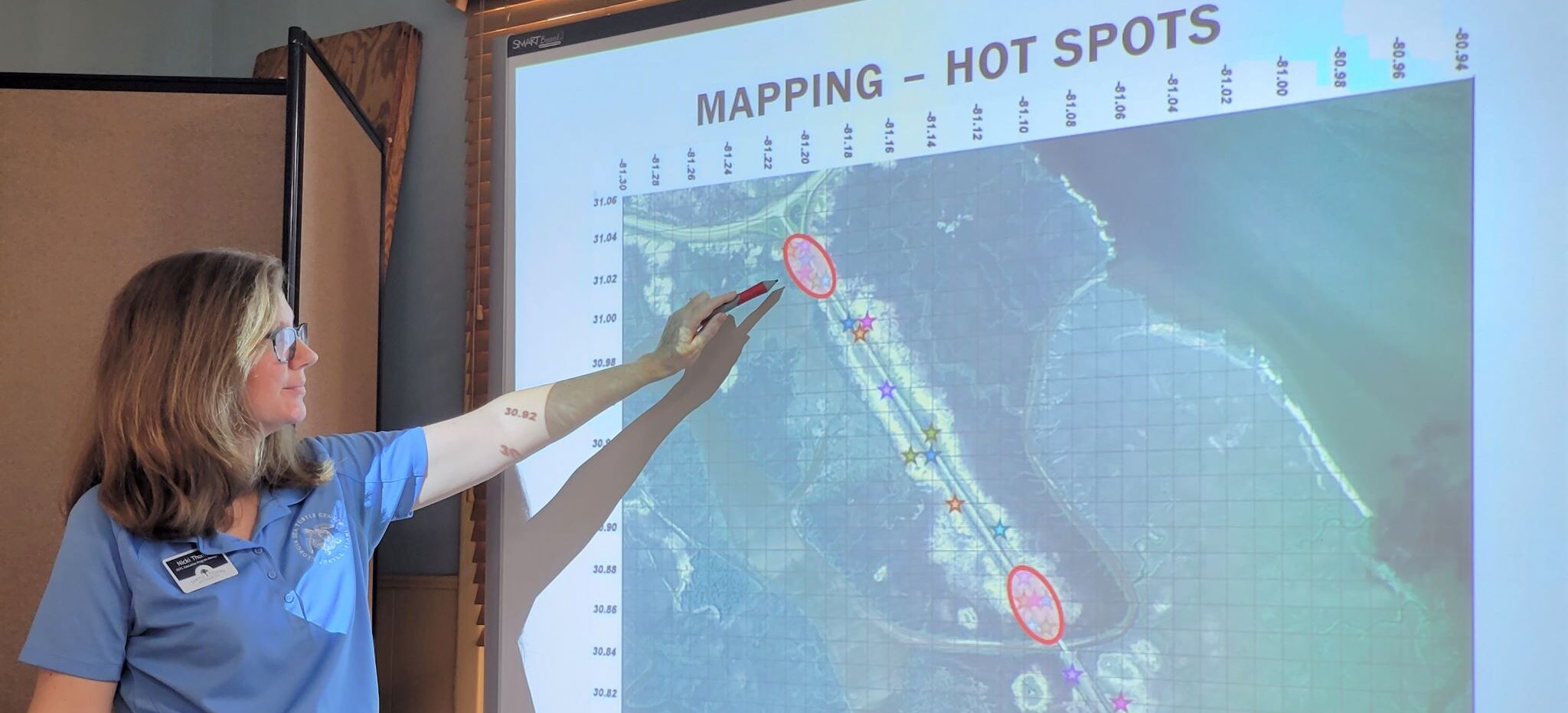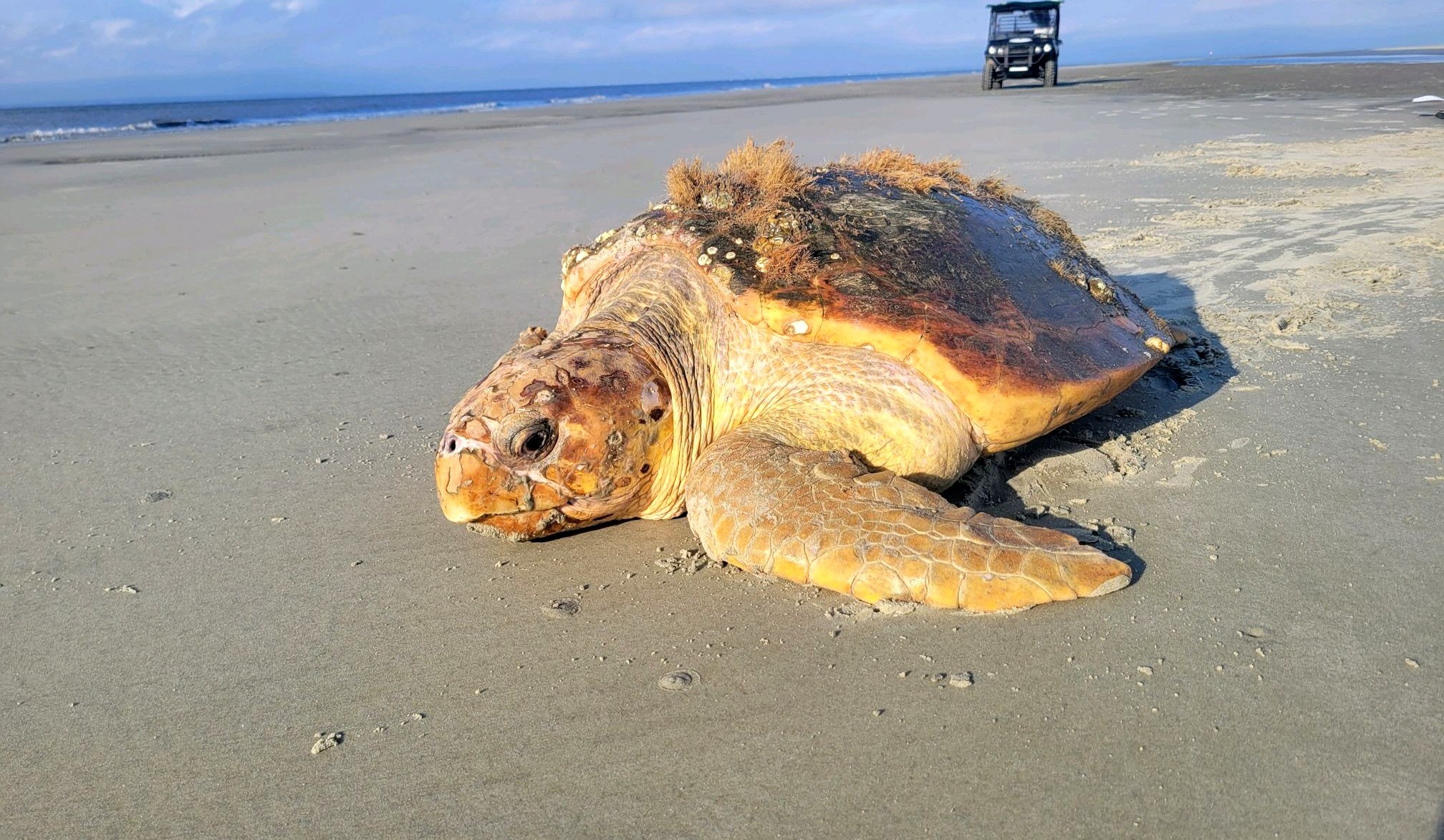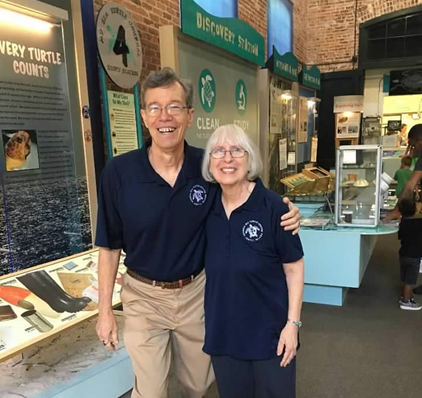Douglas and Karen (Mills) Rucker had already decided to spend their Golden Years in the Golden Isles before an almost too-good-to-be-true career choice on Jekyll Island presented itself to him.
“We were living in San Diego…it was the middle of Covid…and we were thinking that California might not be our ‘forever,’” said Douglas.
“We love to travel–and have visited and lived in some amazing places–but we wanted an anchor,” Karen said. “We wanted some place that felt like ‘home.’”
So, sites unseen, the Ruckers and two of their friends bought three adjacent parcels of land on St. Simons Island. “And then this opportunity on Jekyll comes up,” said Douglas, who works with Noble House Hotels & Resorts, the company responsible for operating the Jekyll Island Club Resort after it sold 2021. “I had visited the area some years ago, but this more recent connection through our St. Simons decision was a crazy coincidence. I interviewed for my current role as Area Managing Director and took the job based on the reputation of—and what I already knew and appreciated about—the Island.”
Part of his personal and professional appreciation for what Jekyll has to offer comes from hospitality management roots developed in his former home base of Michigan. “I twice worked for the family that owns The Grand Hotel on Mackinac Island, which opened its doors in 1887,” he said. “Jekyll Island Club, although not originally a hotel but a private clubhouse for America’s wealthy, opened its doors in the winter of 1888. A love of history and historic hotels, where we prefer to stay when we travel, were big motivators for choosing this area to make our permanent home.”
“We have also always been attracted to islands, to water, and to smaller communities,” said Karen, a Canadian citizen who was on vacation in the Florida Keys 17 years ago when she met Douglas, who was working at a resort in the area. “And of all the places we’ve been since then, Jekyll has the nicest, most welcoming people. We’ve made so many new friends.”
She vividly remembers her first visit to Jekyll. “The view as we drove across the causeway, the moss on the trees in the Historic District, the Club Resort rising like a castle against the sky. It was all so breathtaking.”
That awe remains as the couple settles into their new home at The Moorings at Jekyll Harbor. “Cycling is our favorite activity and mode of transportation,” said Karen. “Every time we ride our bikes from home to the Club [Resort]—crossing the wooden boardwalk bridge with the view of the marsh, the intracoastal waterway, and the Sidney Lanier Bridge in the distance—we pinch ourselves that we live here…in this state park…surrounded by all this beauty. There is something so soulful, so solid, so genuine about this existence.”
As Jekyll Island Foundation investors, stewardship of that beauty now and for future generations is a personal priority. As Champion corporate sponsors, the partnership between the Club Resort and Foundation spans more than two decades and continues today.
“It’s all about the people, from the grassroots to the state level; they are all committed to preservation and conservation,” said Douglas. “That’s a plus because some of the necessary protection efforts take time and need to be well thought out. The Jekyll Island Authority has done—is doing—a great job of this.”
They greatly appreciate the Foundation’s focus on projects that enhance knowledge opportunities not only for residents but for visitors. “The Georgia Sea Turtle Center is such an outstanding example of how donations can improve and extend the life of historic facilities as well as support educational experiences,” said Karen.
She also complimented the Foundation on its honor bench program. “No matter where they are along the bike paths, the benches always seem to be in the right place. They are such a great way to honor someone’s memory while offering a moment to rest and reflect in Jekyll’s peaceful surroundings.”
While travel will always be part of their lives, Douglas and Karen are enjoying how settled and solid they feel in their new home. “The last two years have been pretty special,” said Douglas. “We’re looking forward to doing all we can to be part of the community and to supporting the projects that protect and enhance Jekyll for everyone.”
